Samantha Bryant's Blog, page 25
February 14, 2021
Whiplash and Tire Tracks on My Back: Teaching During the Pandemic
In my day job, I teach middle school Spanish. My school, like many in the United States, closed its doors in March 2020, expecting that we'd all stay home for a couple of weeks while the wave of Covid-19 rolled over the country and that we'd be back to finish the school year. That's not what happened, of course. It didn't go away in a couple of weeks.
We finished the 2019-2020 school year from home, with an ineffective program cobbled together in six minutes with no clear expectations and guidelines for teachers or students. We had some things in our favor since my school district already provided laptops to students, so we could at least guarantee that students had a device to use to access school materials, but we had no plan for offering instruction without the in-person element.
Teachers were told that they were not allowed to teach new material, nor give any grades, and kids quickly figured out that there would be no consequences for failure to perform, so they disappeared in droves. I doubt that much learning of significance happened for anyone between March and June 2020.
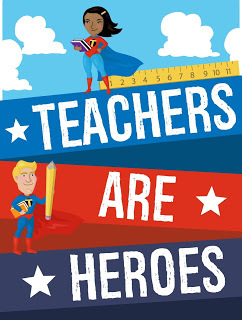 Image source
Image sourceDuring this first bit of school-from-home public rhetoric was full of realizations of how difficult teaching really is. We were called heroes. Parents talked about how much they admired us for handling this every day and praised our creativity in finding ways for our students to keep learning.
That lasted a month or two, then parents began to feel the wear of providing educational support and supervision for their children while trying to juggle their work responsibilities.
So they began to throw teachers under the bus. The public rhetoric shifted to how teachers were overcautious at best, selfish for worrying about their own survival instead of what's "best for kids."
NCAE and other teacher groups fighting for basic precautions and accommodations for teachers with underlying conditions putting them at high risk began to be accused of trying to get paid for "nothing" even as teachers worked harder than they ever had before to try to make learning possible despite huge obstacles.
My personal favorites are the people who argue that teacher need to suck it up because other people did--the same argument people use to argue against student loan forgiveness and other social programs, like we can only be united by suffering the same fate, instead of learning from what happens to one group and preventing suffering for others. Now *that* my friends, is a particularly bitter brand of selfishness.
Come 2020-2021 school year, and we BEGAN the school year at home. It was better though, at least in my neck of the woods.
We had worked on a program all summer, and we had a plan involving scheduled and required live zoom classes, online asynchronous learning opportunities, and even offering limited in-person learning centers for kids/families in high need. Work would again be graded, giving back that traditional tool of accountability and measure of participation and effort.
It hasn't been perfect, but it's been functional. My students mostly show up to live zoom class, or communicate about why they can't. I have about the same percentages of kids struggling and excelling that I always have had (I've been doing this for 26 years, and though I try to reach every kid, I'm enough of a realist to know that isn't realistic). My 6th graders, who had never attended middle school in person struggled the most, and my 8th graders, veterans of our school, handled it the best. Some kids have truly thrived, loving the release from bullying situations and uncomfortable social pressure.
The district found creative ways to bridge technology access problems. They provided wifi hotspots to families in rural areas or who didn't have regular internet access at home. They transformed school busses into rolling wifi stations and drove into high need neighborhoods and parked during agreed upon hours, so kids could use that access. The foods programs kicked into high gear, trying to make sure that no one went hungry and making it as easy as possible to get meal boxes for our families. The librarian arranged for curbside book pickup and drop off. In a lot of ways, it was working.
So, of course, we can't just enjoy the fruits of our labor and stick with the system a little longer. Because the people who lost the earlier argument keep coming back and leadership folds because their decisions are based on external pressure rather than any independent analysis of facts and consideration of what's actually best for the students and teachers. Jelly for backbones.
My district has changed plans so many times now that I've lost track. I feel like I've been watching high speed tennis and got whiplash in the process.
I remember that, at first, we were due to come back to a sort of in-person school in January, but the pushback was HUGE, especially given that that the projected return date wasn't even 2 weeks past Christmas--which was the epicenter of a new spike of cases across the country. We won, and the return date was set for April--after Spring Break, and after the date we expect that teachers will have been offered the chance to be immunized. I was so relieved, I felt like my shoulders dipped below my ears for the first time in months.
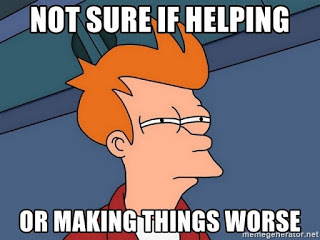 Image source
Image sourceThat brings us to now:
Teachers, even teachers with ADA accommodations like me, are being forced back into the classroom next week in my school district, thanks to a legislative push that our governor opposes but is not expected to veto. So, my first day back in the classroom with kids will be February 22 (just in time for the Superbowl spike of cases). It's either that or quit--four years too early for retirement, with a kid in college to support.
February 22 is an arbitrary selection that ignores all the safety measures we've been discussing for months. The immunization becomes available for teachers in my state on February 24, and the new HEPA air filters are scheduled to be installed in mid-March, but we're being shoved back in the classroom early, which I find especially frustrating when immunizations and filtered air are both right there just barely over the horizon. What do two weeks matter in the face of a safer transition?
There I am, back under the bus again.
It's not that my district isn't doing anything. They do have clear mask policies and requirements with zero tolerance for noncompliance. They do ask the questions and take the temperatures of anyone entering the building, so we at least have the performative security measures like taking off your shoes at airport security.
But my BIG question right now is: what do we gain from this that is worth what we lose?
Here's what in-person instruction will look like at my school:
Roughly 50% of my students will continue to learn-from-home because that is what their families have selected--parents get the right to select based on nothing more than personal assessment of comfort/safety, but staff is not afforded the same consideration. The other 50% has been divided into group A and B, which will attend school from 8:30-2:00 four days a week on alternating weeks.
So, if you're a parent hoping for day care help, you get 4 shorter-than-usual days every other week with no options for pre or post-care. Not sure how helpful that will be for your own work concerns.
The students will be masked and kept 6 feet apart at all times, including while walking through halls, waiting in line, using the bathroom, etc. They will get very little of the social benefit of time spent with other kids because they are not allowed any close contact and will have to eat their lunches in silence because they are limited to 15 minutes with masks off and may not speak during that time because of concerns of germ spread. They cannot play their instrument in band or sing in chorus, and the rules seem to change by the moment for physical education.
So, if you're a parent hoping this will give your kiddos the benefits of social interaction, you're not really getting that either.
I will be pinned to my desk because I have to offer instruction to the 1/4 of my students IN the room, and the 3/4 of my students NOT in the room at the same time. This means that the kids in my room, will still pretty much just be getting a zoom class. Also, I'm not allowed any nearer to them than 6 feet. Also, I will be stressed out and frazzled by managing all that at the same time and probably much shorter tempered than I ever allow myself to be in the classroom.
So, if you're a parent hoping this will give your student the benefits of in-class live-teaching experience, you won't really get that either because the teacher's focus is divided and physical distancing limits our interactions with the people present with us.
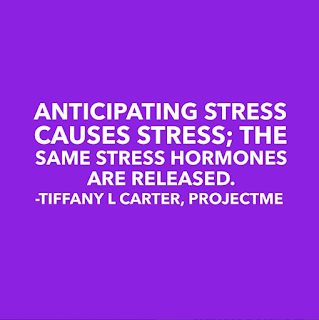 image source
image sourceMeanwhile, people will get infected.
Maybe we'll be lucky. Maybe our cases will be mild.
Maybe your kid and your kid's teacher won't be the one who dies or suffers lifelong health implications.
But many among the staff and students will spend a fair amount of mental energy worrying about it and anticipating disaster, and that takes a mental health toll in and of itself.
Teachers will quit.
Many already have--left teaching, taken early retirement. Classes will be supervised by substitutes while the teacher quarantines after exposure, which means they'll still be taking zoom classes or participating in asynchronous learning, but now they'll also be worried about their teacher and getting limited feedback.
So, I'll let you know how it goes, but my prediction: poorly. And if I die from Covid because my district wouldn't wait two weeks to get me immunized? Y'all better pray ghosts aren't real, because I'll be back to haunt with a vengeance.
February 10, 2021
Wanderlust
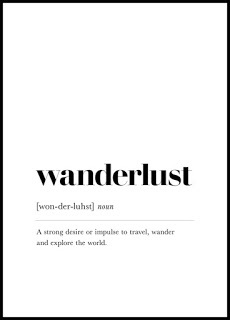 Image source
Image sourceWanderlust fills me with a restless urgency sometimes. If I were a woman of means, I'm not sure I would even have a permanent home--instead I might have great luggage, a mind full of sunsets over distant horizons, and a storage facility where I send my keepsakes.
But I'm not a woman of means, so I've not had nearly the amount of travel I'd like. I managed to see a few places when I was younger--Spain, England, the Bahamas, wide swaths of the United States and Canada, but it's been more than a decade since I've taken a significant trip--one with airplanes and customs I don't understand and languages I can't speak. I'm feeling the tug of the road hard these days.
Usually, I can tamp it back down--stave it off with a small adventure that fits into my life responsibilities and pocketbook--but I have a hunger for serious travel in my heart of hearts, a deep-seated desire to explore new places, see them not just in photography and film, but with my own eyes and senses. The hunger has gone too long unfed and I'm getting hangry.
When the pandemic descended upon us, I was planning a trip to Ireland with my mother and my sister. It was supposed to be for Mom's birthday last summer, but by spring, it was clear that none of us were going anywhere. I go back and forth on whether I should be letting myself hold out hope for this summer either. Vaccine--yay! Noncompliance keeping Americans on no-travel lists--boo!
So, it's been nearly a year, and I haven't been further than an hour from home with only one exception in all that time. Dang, but my feet itch. This is not my favorite sort of unrequited love.
Here's to travel. May we all have the chance to visit far horizons again soon.
February 3, 2021
Blogging with Friends: 21st century Calling Cards
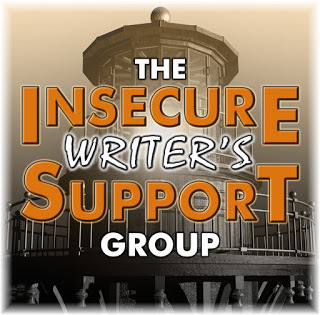
Welcome to the first Wednesday of the month. You know what that means! It's time to let our insecurities hang out. Yep, it's the Insecure Writer's Support Group blog hop. If you're a writer at any stage of career, I highly recommend this blog hop as a way to connect with other writers for support, sympathy, ideas, and networking.
If you're a reader, it's a great way to peek behind the curtain of a writing life.
Our Twitter handle is @TheIWSG and hashtag is #IWSG.
February 3 question - Blogging is often more than just sharing stories. It’s often the start of special friendships and relationships. Have you made any friends through the blogosphere?
The awesome co-hosts for the February 3 posting of the IWSG are Louise - Fundy Blue , Jennifer Lane, Mary Aalgaard, Patsy Collins at Womagwriter, and Nancy Gideon!
Be sure to check out their insights next!_________________________________________________________
Blogging can be a great way to connect with other writers and creatives. Participating in blog hops like this one and the A to Z Blogging Challenge in April has introduced me to so many interesting people over the years.
There are people I still follow that I first found by clicking through links in a list of participants and others that have wandered through my life for a few months then wandered back out again, but all of them have taught me something.
If you follow someone for years, you can watch them change and grow--see aspiring writers become award-winning, multi-published authors with book deals and exciting projects. Heck, I even enjoy looking back through the archives of my *own* blog sometimes in that light--too see how far I've come and how my goals have changed over time.
I learn about opportunities that way too--there's always something to be gained by taking a moment to step into someone else's world for a moment and look around. In that way, blogging can be a form of networking and research as well as community-building and friendship.
Living a creative life is easier with community, and blogging can be a great way to build that community, if you're willing to put in the work.
And there is work, or at least time investment. There's an expectation of reciprocity, rather like leaving a calling card in an 18th century novel: I visited you, and you should return that favor. We invest in each other, giving our time and attention.
 image source
image sourceI rather enjoy it myself--it's a genteel sort of obligation that leaves me feeling fancy, like the digital equivalent of visiting day for one of Jane Austen's heroines. So leave me your calling card, in the comments below, and invite me to your digital house. I'd love to see what you're up to.
February 2, 2021
January Reads
I had a bit of a rough start to 2021, as did many of us, I'd imagine. I was caught in all the same whirlpools and eddies that had kept me spinning in circles for most of 2020, so the month didn't have that "fresh start" feeling that it sometimes can. (It got a little better late in the month).
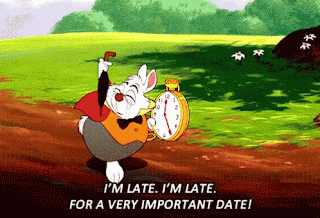 Image source
Image sourceI was even STILL working on the fourth Menopausal Superheroes novel, a project that should have been finished and sent to my publisher on January 1, but which I finally handed in on January 31. This is officially the latest I have ever been on a deadline of any sort, and definitely the first time I've been that late on a publishing deadline. Those who know me IRL can probably imagine the tizzy that had me in.
I shut down nearly everything I do for entertainment during January: almost no TV, very little gaming, even less socializing than usual. But I didn't give up reading.
In fact, I had a great reading month! I read five books and really enjoyed all five.

I started with a biography of Bruce Lee by Matthew Polly, which I enjoyed as an audiobook. I already knew enough about Bruce Lee to know the man had led a fascinating, if all too brief life, so it's no surprise that the details and controversies of his life made for good material. But I've read more than one biography that managed to make an amazing person into boring reading, so I'm happy to report that this telling of Bruce Lee's life story was thoroughly engaging, and struck a balanced tone that painted the man neither as a blameless paragon nor a villain, but as the driven performer and ambitious person he was.
When I can find time for it, this book made me want to have a personal Bruce Lee film festival, hunting down as much of his work as I can and watching it. Coincidentally, right after I read this book, I found the TV Show Warrior, a project Bruce Lee dreamed of bringing to fruition and which has now finally been produced for television. My husband and have watched a few episodes now and it's powerfully done. I only wish Lee could have seen it made in his lifetime and taken the starring role he'd planned for himself.
At the same time, I was reading Charles W. Chesnutt's The House Behind the Cedars on Kindle for my First Monday Classics Book Club. I'd never heard of this book before, so I was so glad my book club brought it to my attention. A study on the idea of "passing" racially, the story centers around a bi-racial light-skinned woman just after the Civil War and her ill-fated romance. The ending upset me, even if it might have been the right one for the story, and I still find myself thinking about the book weeks after I finished it. It deserves to be better known!
Chesnutt's explorations of race led naturally into Kindred by Octavia Butler, a book that had been on my TBR list for ages, but which I had not yet read. It's a very unusual time travel story, in that no time is spent on the mechanics of time travel. Instead, being pulled back in time is just something that happens to Dana, the main character, a woman from the 1970s who finds herself among her ancestors in the antebellum south, seeing first-hand the fraught relationships and lasting damage the institution of slavery wrought. I read this one moving back and forth between an audiobook and the kindle edition and found it fascinating. It's taken over the "favorite" spot for me of books by Butler, though I have not yet read everything she wrote.
Circe by Madeline Miller was all over Instagram a few months back and I decided now was a good time to dive into it and I'm so very glad I did. It hit so many positive notes for me: fierce and difficult protagonist, complicated love story, reinterpreting and reimagining known mythologies. I have a feeling this one will be on my "best of" list when I get to the other end of 2021.
The last book I finished in January was The Butterfly by Lucy Blue, a romance/mystery in the Sherlock Holmes universe. I loved this interpretation of Holmes, and hope that Blue will consider writing more stories like this one in the future. In the meantime, I've downloaded her Stella Hart series of romance mysteries that I've been hearing good things about. They sound right up my alley.
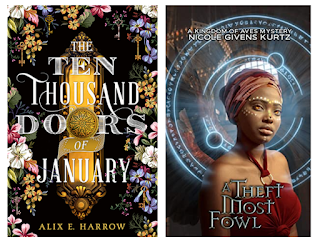
As the month ended, I was in the middle of two more books that are both wonderful so far. Check back in February and I'll let you know what I thought! In the meantime, I'd love to hear from you in the comments. What did you read this January? Any favorite authors I ought to check out?
January 13, 2021
On Adaptation: Anne, Jo, and Percy
Talking to readers about adaptations of books they loved is like walking through a minefield where anything might blow up, depending on who steps on it.
Sometimes if I really love a book, I'll avoid seeing a movie or television series made about it because I'm worried they'll ruin it.
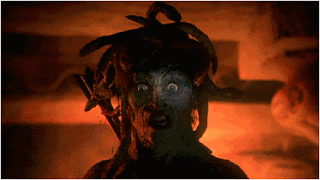 Image SourceAnd sometimes they have.
Image SourceAnd sometimes they have. Destroyed it.
Gotten it SOOOOO wrong it hurts.
I'm looking at you Percy Jackson and the Olympians.
Then again, I've really enjoyed some adaptations that make significant changes from the source material.
Two in particular stood out for me recently:
1. Anne with an E, a series on Netflix from creator Moira Walley-Beckett which was based on the novel Anne of Green Gables by Lucy Maud Montgomery.
2. Little Women by Louisa May Alcott adapted for the screen and directed by Greta Gerwig.
Neither of these adaptations were religiously true to the source material, yet both of them felt more true to me than other arguably more faithful adaptations. So, what's the difference?
Why did changes to Percy Jackson's storyline horrify and offend me, but the addition of entire characters and plot lines to Anne with an E and the out of chronology telling of Little Women feel not only comfortable, but right?
My theory is that it has to do with finding the heart of a work. What's the emotional core of the piece and of the characters? If an adaptation finds that, then even significant changes are not going to upset me.
It's a trend I'm seeing in storytelling of this kind, a new kind of line creators are riding where they pay homage to something they love, but also bring it forward to a different or wider audience by changing significant details like time and place, race or background of characters, and even plot.
Anne Shirley and Jo March are iconic characters, important to many a grown woman who consumed their stories when young. Similar in being women out of their time: headstrong, free-thinking, determined, and passionate. So many women I know aspire in their hearts to be Anne and Jo. And that's the core of any adaptation of these works: does the adaptation convey the heart of the character?
In both of these pieces, I'd say yes! resoundingly yes! While I have enjoyed other adaptations of these books, this was the first time that I felt fully connected to the characters. The writers who adapted these works clearly loved the books and characters in the same way I do.
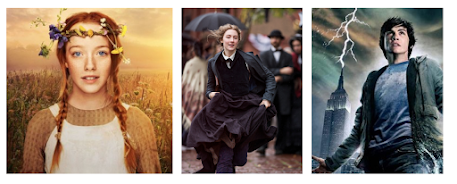 Anne, Jo, and Percy: Yes! Yes! and…Nope.
Anne, Jo, and Percy: Yes! Yes! and…Nope.Anne always was a social justice warrior, fighting for fair treatment for herself and for those around her. In Anne with an E, that becomes a step more overt, with less parlor-talk pussy-footing and more taking action. That meant adding entire plotlines, but I was completely fine with that, because they'd captured MY Anne.
Jo, too, was fiercely loyal, and struggled with the part she was expected to play in society--docile, obedient, and feminine. She strained at those bonds and sought a life less ordinary, something that fulfilled her and brought her joy--writing! Gerwig's version of Jo explored her story out of order--juxtaposing moments of childhood against moments of her budding adult life to show us the woman she became that much sooner. (Bonus points, too, for working in the ending Louisa May Alcott really wanted, but couldn't get her publisher to agree to).
Poor Percy, on the other hand, was transformed in the script from a good-hearted kid who fought feelings of inadequacy into a badass just barely in hiding, needing barely a blink to turn into a heart-throb hero. Sure, that character might have interest for some, but the heart of the boy I'd enjoyed getting to know in Rick Riordan's books didn't make it onto the screen. I don't know who that boy was, but he wasn't Percy Jackson.
One can only hope that, should I ever be so lucky as to see my work adapted for movie or television, that the show-runners understand the heart of my work and love my characters enough to do right by them.
How about you? What makes you love or hate an adaptation? Are you a stickler for faithfulness to the original? How do reinterpretations and changes of setting play in your world? I'd love to hear from you in the comments.
January 6, 2021
IWSG: Seven Deadly Sins of Writing

Welcome to the first Wednesday of the month. You know what that means! It's time to let our insecurities hang out. Yep, it's the Insecure Writer's Support Group blog hop. If you're a writer at any stage of career, I highly recommend this blog hop as a way to connect with other writers for support, sympathy, ideas, and networking.
If you're a reader, it's a great way to peek behind the curtain of a writing life.
January 6 question - Being a writer, when you're reading someone else's work, what stops you from finishing a book/throws you out of the story/frustrates you the most about other people's books?
The awesome co-hosts for the January 6th posting of the IWSG are Ronel Janse van Vuuren , J Lenni Dorner, Gwen Gardner Sandra Cox, and Louise - Fundy Blue! Be sure to check out their posts as well as some of the other fabulous posts in this blog hop after you see what I've got to say:
_________________________________________________
Becoming a writer can be hard on your reading life. Once you know "how the sausage is made" it can be harder to just lose yourself in a story. You find yourself noticing the structure, turning pages back to figure out how the writer elicited that effect, etc. Reading like a writer can make it harder to just relax and read without analyzing. At this point, I'm extra thrilled when I can fall into a book and become so immersed that I stop looking at the structure and skill and just hold on for the ride.
I had good luck in 2020, reading way more good books than bad ones. Maybe I've gotten better at figuring out which books are really for me.
Still, I'll give even a flawed book a fair shot. If the characters are strong and the plot compelling, I'll keep going in the face of poor editing or small continuity errors. I can even forgive a bit of clunky expository dialogue. But I do have some deal-breakers. It's not IMPOSSIBLE for me to enjoy a book that does one of these, but it is definitely far less likely.
So here they are: the Seven Deadly Sins of writing, at least if you want me to read your work:
Samantha's 7 Deadly Sins of Writing
Sexism: Nothing will pull me out of a book faster than outdated, patriarchal, or condescending treatment of female characters. (The same goes for other isms: racism, classism, ablism, homophobia, etc. I will give *some* slack to very old books if there are other compelling reasons to keep reading)Outright Preachiness: Characters can have points of view and politics, of course, and I'm fine with authors exploring issues through their fiction, but when it starts to feel like the book might actually be a political or religious tract? I'm out. Rape: I'm so tired of rape as a character motivator or backstory element. Double yuck if the rape of a female character only happens for its effect on a male character. Overused, and usually just plain lazy. There are TONS of ways to traumatize a fictional person. Why must we always go here? Obvious Thinly Disguised Biography: We're all in our characters, but if you want to write memoir, write memoir. Don't just change the names and call it fiction. If we don't know each other and I can STILL tell that you're working out your daddy issues on the page? Yikes. Big continuity problems: As a writer of a series myself, I know that it's hard to keep track of all the small details, but if the continuity errors are too big and glaring, you're asking me to do the writer's job when I just came here to read. Throws me right out of the story and makes it hard to fall back in.Unbelievable coincidences: Writer-convenience-itis is a terrible disease. The most egregious kind is when a character suddenly gains knowledge or abilities that the story has offered no hint about before the moment that it solves the problem. Not fair. Feels like cheating. Characters Acting Out of Character: If you've created a fictional person I've started to believe in, then have them do something that character just wouldn't ever do, I feel as if I've been lied to, so in the donation pile your book goes. So, how about you? Any deal-breakers for you? Of course, it all comes down to personal taste--and my poison might be your perfume. That's the beauty of it--so much to read out there, there's bound to be something perfect for you.
December 24, 2020
I Read 75 Books This Year!
More and more of my reading these days leans to the audiobook format. Of the 75 books I read this year (Goodreads says 80, but it looks like it counted some books more than once), about 40 were audiobooks, 12 were e-books, 15 were paper (the other 8, I honestly can't remember).
I read a lot fewer e-books this year than is usual for me, probably due to my zoom life. When it was time to read, I just didn't want to spent yet more time on screen. But audiobooks were great for my nervous energy in that I could read while I matched socks and handled the mundanities of life.
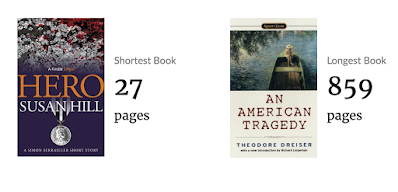 I've fallen into a comfortable pattern in my reading, reading some things for book clubs, some things because I'm curious about the buzz surrounding them, some things because I know the authors, and some just because they caught my interest.
I've fallen into a comfortable pattern in my reading, reading some things for book clubs, some things because I'm curious about the buzz surrounding them, some things because I know the authors, and some just because they caught my interest. For my classics books club this year, I read ten books. (There was an 11th selection I didn't manage to fit in).
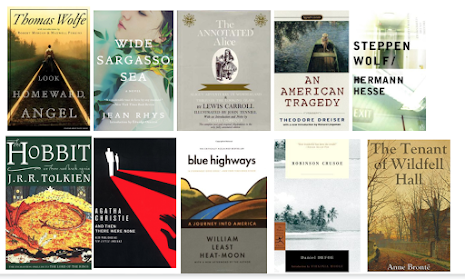
Of these, I'd read three before: Wide Sargasso Sea, The Hobbit, and And Then There Were None. It's always interesting to read something again, and see how the experience changes for you over time.
The rest were new to me. I got impatient with some of them--too much slow storytelling, outdated attitudes, etc.--but I loved The Tenant of Wildfell Hall. I wish Anne Brontë had lived longer and had the opportunity to continue to grow as a writer. She would have earned her spot beside her more famous sisters. Reading classic literature is a sideways view into history--teaching you as much about the context the author created in as about the stories themselves.
Looking back over the rest of my list, here are some standouts:
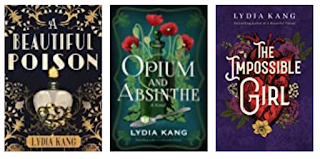
I found Lydia Kang at the end of the year. I fell hard for the mixture of romance and mystery, with historical settings and exploring social classes. She's likely to stay on my watch list as a favorite author.
Earlier this year, I fell equally hard for Cherie Priest's Borden Dispatches. Yes, that Borden, alongside Lovecraftian cosmic horror. Looks like my sweet spot as a reader this year intermixed violence and history, with a touch of romance.
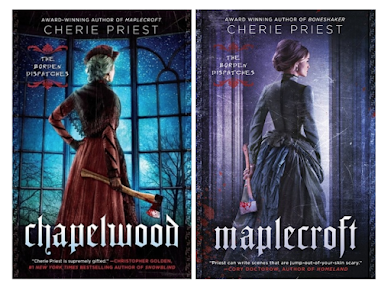
In that vein, I also loved these four books.
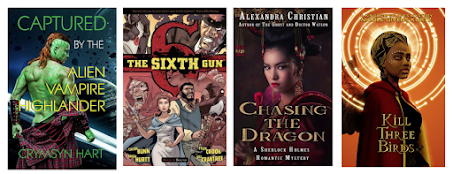
Captured by the Alien Vampire Highlander is an unapologetic romp through romance tropes and a delightful confection. Perfect if you need an escape.
The Sixth Gun series of graphic novels fits firmly in the "weird wild west" subgenre, following six mystical guns that grant special abilities to those who carry them.
Chasing the Dragon takes place in the Sherlock Holmes universe, creating a romance that fits in the holes left in the original work. Alexandra Christian is GENIUS with this era, and brings such spark and humor to her dialogue.
Kill Three Birds created an original speculative fiction world, featuring bird-people in a wonderful tight little mystery story. I'm looking forward to more in this series.
I also continued some series and genres I'd been reading in the past few years:
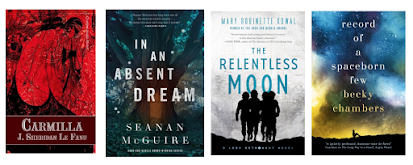
Carmilla is a classic vampire novel I had missed hearing about until recently--it predates Stoker's more famous work Dracula, and it's easy to see the influences on that story in this one. I listened to it as a wonderfully produced Audible original and was enthralled throughout. Highly recommended for fans of classic European vampires (if you want edgier, less familiar vampires, try Slay: Stories of the Vampire Noire. I have a retelling of the Passover story in there that will startle you, and the other stories are blowing me away!).
In An Absent Dream is part of Seanan McGuire's Wayward Children series, which follows children who find portals into magical worlds. Though I recommend that entire series, it's not necessary to read the others to enjoy this one thoroughly. Of all I've read so far, this one is my favorite.
The Relentless Moon continues Mary Robinette Kowal's Lady Astronaut series, following a secondary character from previous books into a locked room mystery set on a fledgling moon colony. Satisfyingly thorough realistic science seen through very human stories. I love this series so much!
Record of a Spaceborn Few is part of Becky Chambers's Wayfarer series, an optimistic vision of the future, exploring inter-species relations through aliens and AI characters, alongside humans. I continue to love the way Chambers explores epic sagas by focusing on small, slice-of-life stories. Not quite as tense and exciting as the previous entries in the series, but still moving and well worth the read.
I could talk for days about good books, but I'll stop there. I'm happy that I found so many good reads this year, and I'm grateful to all the authors who provided me comfort, escape, and inspiration during a very hard year. Art is so important when times are hard.
I'd love to hear about what books you read and loved this year, so hit me up in the comments! And if you like my reviews, you can follow me on Goodreads or check out my year in books there to see what else I read.
December 19, 2020
My Publishing Year: A Horror Show with Unexpected Heroism
2020, man. Whew. Don't those numbers just wear you out every time you see them? Between the pandemic, the social unrest, and the politics, I've never been so happy to see a year end.
Oddly, it was an excellent publishing year for me, though. I guess there's balance in that?
Seriously, though. I had eight works published in books this year! Holy-freaking-cow, that's a lot.
Since time was this weird warped thing this year where days could last for years and months go by in a blink, I didn't really realize so much of my work had made it out there into the universe until I took a moment to look back and reflect.
I am greatly amused to realize that I published 4 super-heroic works and 4 works of horror. That's 2020 in a nutshell isn't it--a horror show with unexpected heroism.
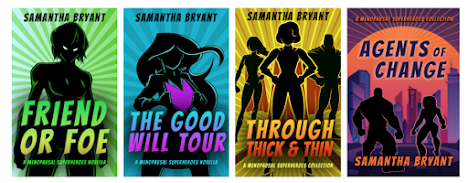
Long time readers might remember that I had some publishing turmoil in late 2018, early 2019, when I had to reclaim my rights from a failing publisher and seek a new home for my work. The story has a happy continuation though, in that my Menopausal Superhero work is now housed with Falstaff Books, a thriving mid-size publisher out of Charlotte, North Carolina, full of the "Misfit Toys of Fiction."
Because their publishing schedule didn't allow for seeing a fourth Menopausal Superhero novel into print until 2021, we decided to release short works in the series this year. Friend or Foe, a novella that bridges book 1 ( Going Through the Change ) and book 2 ( Change of Life ) came out in March of 2020.
The Good Will Tour , a stand-alone adventure for Flygirl and Fuerte came out in May.
And Through Thick and Thin, a collection of short stories set in the Menopausal Superheroes universe came out in August.
Finally, all the short works were collected into an omnibus edition in Agents of Change , which includes all these works in a single volume and came out in November.
While all this was happening, I was busy writing Be the Change, the fourth Menopausal Superhero novel. I'm in the last of my self-edits/revisions right now, with plans to send the finished book to Falstaff by January 1st. I think you're going to love this one--I know I fell in love with my character all over again writing their stories here.
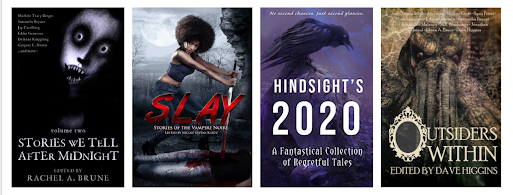
Then came the horror! Although horror was one of my first loves as a reader, I didn't start out writing it. In the past few years, though, more and more of my short work has leaned toward the weird and frightening, and this year, four of my horror short stories made it into anthologies.
Stories We Tell After Midnight, Volume 2 from Crone Girls Press has been described as traditional horror. These are the kinds of horror stories that drew me into the genre in my youth--stories that give you a good shiver and might make it a little harder to fall asleep at night. That's not to say that they are staid, boring or without humor and innovation. My story, "The Cleaning Lady," began as part of a Halloween flash fiction challenge proposed by writing-friend Bliss Morgan and might have been influenced by the fact that I was watching Downton Abbey at the time and thinking about servant-master relationships.
Slay: Stories of the Vampire Noire from Mocha Memoirs Press asked for vampire and vampire-slayer stories set in the African diaspora and featuring black characters. My daring little tale, "His Destroyer", is a retelling of the Passover story, about the 10th plague of Egypt during which the first-borns of Egyptians households were slaughtered. The story as I learned it never specified who exactly His Destroyer was, and how exactly the children were killed. So, I wrote this story imagining those details for myself. I gave myself the chills, so hopefully you'll get them, too, if you read it. This is a giant collection--with 29 stories of HUGE variety. I'm so excited to have my work included among such giants of the genre.
Hindsight's 2020 came about when a group of writers who used to share a publisher came together as a support and recovery group for each other (yes, *that* publisher--see link above). Our theme was regret, or hindsight, and I wrote a wonderfully creepy little thing called "I Should Have Known" set in the Victorian era about love, sacrifice, and monstrosity. So much fun to write!
Outsiders Within from Abstruse Press just came out yesterday! It's a collection of cosmic horror stories and you might enjoy your trip through madness with Margaret in my story, "Margaret Lets Her Self Go." This is the same press that published Deadman Humour: 13 Fears of a Clown in late 2019, which includes my bit of Lovecraftian horror, "The Gleewoman of Preservation."
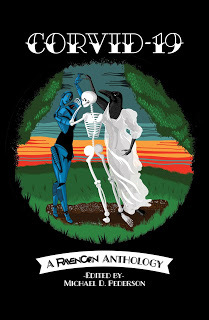 And if that's not enough of my work yet, you can also support the Kickstarter for Ravencon to read my story, "If the Moon is Real." Hear an excerpt here, on YouTube.
And if that's not enough of my work yet, you can also support the Kickstarter for Ravencon to read my story, "If the Moon is Real." Hear an excerpt here, on YouTube. Since Ravencon, a small Virginian convention close to my heart, had to cancel the 2020 and 2021 live events, they've put together this collection of short stories featuring corvids--a class of birds that includes the eponymous Raven of Ravencon.
The hope is that the Kickstarter will earn enough money to keep the organization afloat and "in the black" until we can gather again as an unkindness or conspiracy of ravens in person.
Because support has been so strong, they're already working on a stretch goal to create a second volume of the anthology! The Table of Contents includes some pretty impressive names as well as some new writers just establishing a foothold in the industry. Well worth the few dollars, AND you get to support a small convention at the same time.
I've already got a few more works in the pipeline for 2021, so despite the weirdness of this year, I'm feeling pretty successful on the publishing front. If you've read any of these works, please drop a review on Amazon or Goodreads. Even just a few words is enough to help the visibility of my work. Just "I liked it" or "that woman writes some crazy stuff, yo!" is the best gift you could give me.
December 11, 2020
Repost: "We Value Teachers" and Other Lies
Note: This post first appeared on my teaching blog a week ago, but I felt strongly enough to seek a wider audience for these thoughts. Apologies to anyone who follows me both places.
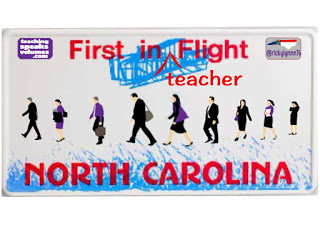 Image source
Image sourceI lost another colleague yesterday. Thankfully not to death (though I worry about this daily now), but to retirement. That makes three already this year and I don't blame them a bit. I've looked at retirement myself, though it's complicated for me because I don't have the optimum number of years (having spread my career across four states) to get full benefits yet and I'm too young. The calculus of life vs. livelihood is complex when you have others to support by your work.
Besides the three who retired, I know of one who is leaving the profession and another seeking a transfer, in hopes that another school will value her work and treat her better. I've thought about both of those options, too. I love teaching, but I also love being able to protect myself and those I love from infection and death.
Lots of us are in the crisis decision moment right now, as our district is sending staff back to the buildings on Monday and students back in January (don't get me started on the lack of faith in us this shows). I expect to see more and more talented educators making the hard choice to leave the work they love.
I keep getting messages from my district, my state, and my country playing lip service to the idea that they value teachers. But I don't see it. Saying thank you is easy; showing actual support and appreciation is much more difficult.
If we were valued, our voices would be at the forefront of conversations about how to handle education under the current crisis. Instead, there's barely even performative attempts to include teachers--the workers with the most expertise and most at risk--in the conversation at all.
I fill out all the surveys I am sent and participate in all the meetings, but there's no evidence so far that it is worth my time. The results send a clear message, one that is ignored in favor of what's easier for the institution. Though we allow our students' families to choose to stay home and continue virtual education, teachers will not be afforded the same right, even though we are more at risk than our students, especially the veterans. You don't become an experienced teacher without getting old, and you rarely get old without developing some underlying conditions that put you at additional risk.
If we were valued, the communication from above would show that those above me in the hierarchy know what I am doing and are looking for ways to make it easier and more sustainable. Even though I work in a small school district, where you would think it would be easier to keep track of who is here and what we're doing, there's little sign that anyone who isn't a direct parallel colleague understands what I actually do. It's like being a baker whose supervisor last used an oven when you had to stoke an actual fire inside to bake.
And this is America, after all, so if we were valued, our country would put their money where their mouth is. Money would have flowed towards resources to make safe education from home tenable--providing infrastructure and tools as well as paying attractive salaries to bring our country's brightest and best to the fight. Internet access would have become free and fast for any household with a student in it. You can always tell what a capitalist REALLY values, by looking at the bottom line, and education is far too near the bottom across the board.
So, thanks for saying you value me and my work. But if you really do, then prove it.
December 2, 2020
IWSG: Writing, In and Out of Season
Welcome to the first Wednesday of the month. You know what that means! It's time to let our insecurities hang out. Yep, it's the Insecure Writer's Support Group blog hop. If you're a writer at any stage of career, I highly recommend this blog hop as a way to connect with other writers for support, sympathy, ideas, and networking.
If you're a reader, it's a great way to peek behind the curtain of a writing life.
December 2 question - Are there months or times of the year that you are more productive with your writing than other months, and why?
The awesome co-hosts for the December 2 posting of the IWSG are Pat Garcia, Sylvia Ney, Liesbet @ Roaming About Cathrina Constantine, and Natalie Aguirre! Be sure to check out their posts as well as some of the other fabulous posts in this blog hop after you see what I've got to say: ______________________________________________________________
I pair my writing endeavors with a teaching career, so there is definitely a feeling of seasons about my focus, trying to make regular progress in small bursts in some times of the year, and having the chance to luxuriate in longer writing sessions during others.
During the school year, writing is shunted into a couple of hours a day at most. I still write--my daily writing chain is now over 7 years long--but I move slowly, producing somewhere between 250 and 800 words a day on average. Definitely my turtle time of year (vs. the hare).
I made a video about this on my author YouTube recently. You can check it out here:
Generally, when school is out, I go full-time on my writing life, devoting five or six hours a day. I still have other things to balance, of course, but even all my family, friendship, and life demands don't add up to the demands of a school day and, most of the time, I can get a couple of writing sessions a day.
It's been a little different this year, thanks to COVID--meaning I couldn't send my youngest daughter to a friend's house or off to camp--but I still got a good four hours a day last summer by taking my writing time while she was still asleep (teenagers sleep late if you let them) and that felt like heaven.
I look forward to being a full time writer someday, but for now, this seasonal swing works for me. It might even be the secret of my success at the moment.
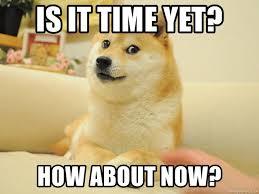 image source
image sourceI look forward to my months (and holiday weeks) of being *only* a writer, and my enthusiasm and anticipation probably contribute to my ability to make good use of the time. I save up ideas and promise myself I'll get to do certain projects when my writing season arrives.
I appreciate those hours all the more because I don't have them any old day. They're a gift. Something special.
How about you? How does your yearly flow go for your creative endeavors?



